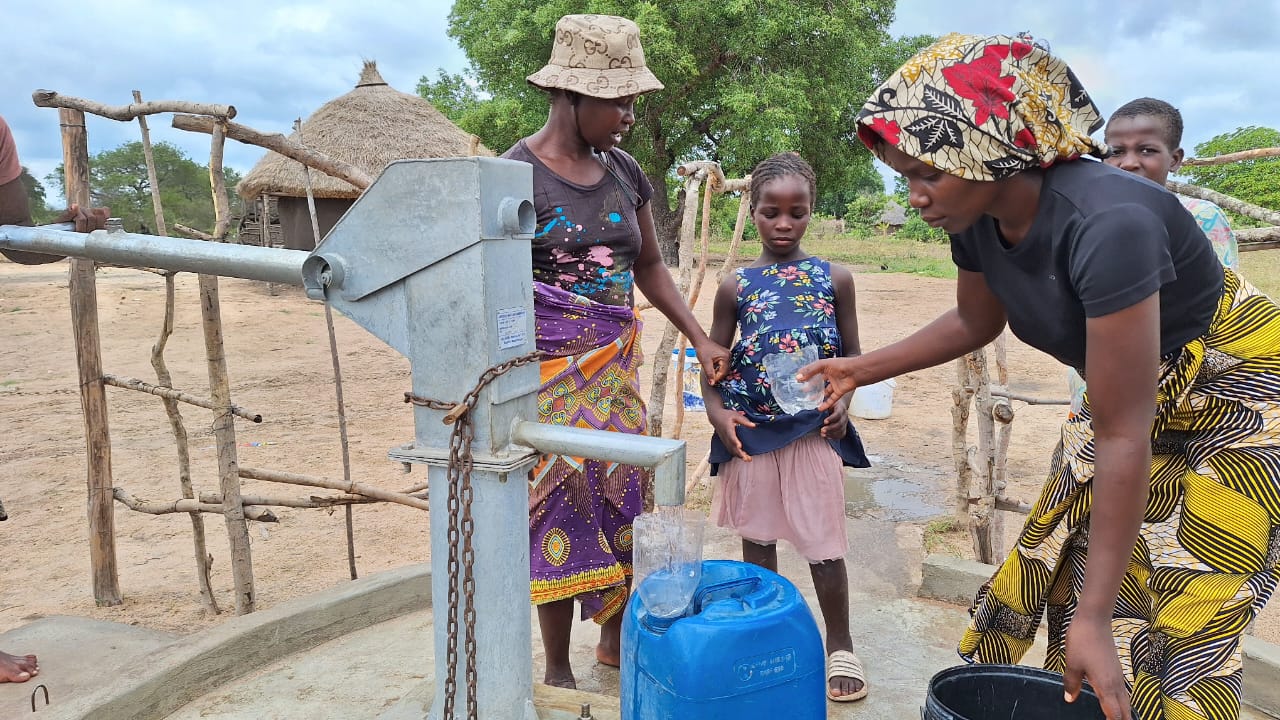Clean Water, New Beginnings: A Community’s Journey to Hope
By Álvaro Malamba, Communications and Advocacy Coordinator
For as long as Sara Macamo can remember, life in her remote community, nestled along the Limpopo River in Gaza Province, revolved around one daunting task, finding water. Every day, the women, including Sara, embarked on long, exhausting treks to collect water from the river. The journey was perilous, wild animals like elephants often roamed the same paths, turning each trip into a dangerous gamble. And the water they brought back was rarely clean, shared with animals and riddled with disease-causing contaminants. The toll was heavy, particularly on the children, who often fell ill with diarrhoea and other waterborne diseases.
"After so many years of walking miles for unsafe water, it feels like a dream to see this system delivering clean water right here, close to our homes," Sara says, her voice thick with emotion, watching the crystal-clear water gush from the new borehole that now stands at the centre of her village.

In this region, cultural norms place the responsibility of fetching water squarely on the shoulders of women. For Sara and the other women, this duty drained their days, leaving little time for anything else. Worse still, the burden fell hard on young girls, who were often late to school, arriving tired and dishevelled after hours spent hauling heavy containers. The endless routine of survival trapped them in a cycle of lost opportunities, where education and progress took a back seat to the immediate need for water.
But that all changed with the arrival of the borehole, a simple but life-altering innovation. Suddenly, the long, dangerous journeys were over. Water was now just a few steps away. For Sara, it was as if the sun had risen for the first time in her life. Time, once spent trudging to distant rivers, was now freed for farming, caring for children, and, most importantly, allowing the young girls to focus on their education. No longer did they have to choose between their studies and their duties at home. Regular attendance at school became the norm, and with it came improved academic results and the hope of a brighter future.
The benefits extended far beyond just time-saving. The quality of life in the community improved dramatically as the health of its people flourished. Incidences of waterborne diseases plummeted, and with cleaner water, the children, who once suffered from frequent bouts of diarrhoea and dehydration, began to thrive. Medical costs decreased, and with healthier families, the community felt a collective sense of renewal.
"Water is the essence of life," Sara reflects with a thoughtful smile. "We always knew it, but only now do we truly understand its power. This borehole has brought more than just water. It has brought us health, opportunity, and dignity. For the first time, we can imagine a future where our children are healthy, where our girls can learn without interruption, and where we, as women, can contribute to the growth of our families and our community."
The borehole was not just a source of water, it was a source of hope. A lifeline that has not only quenched the community’s thirst but has also revitalised their spirit, offering a tangible glimpse of a future filled with promise. For Sara and her neighbours, the Limpopo no longer symbolises the struggle for survival but stands as a reminder of how far they’ve come.